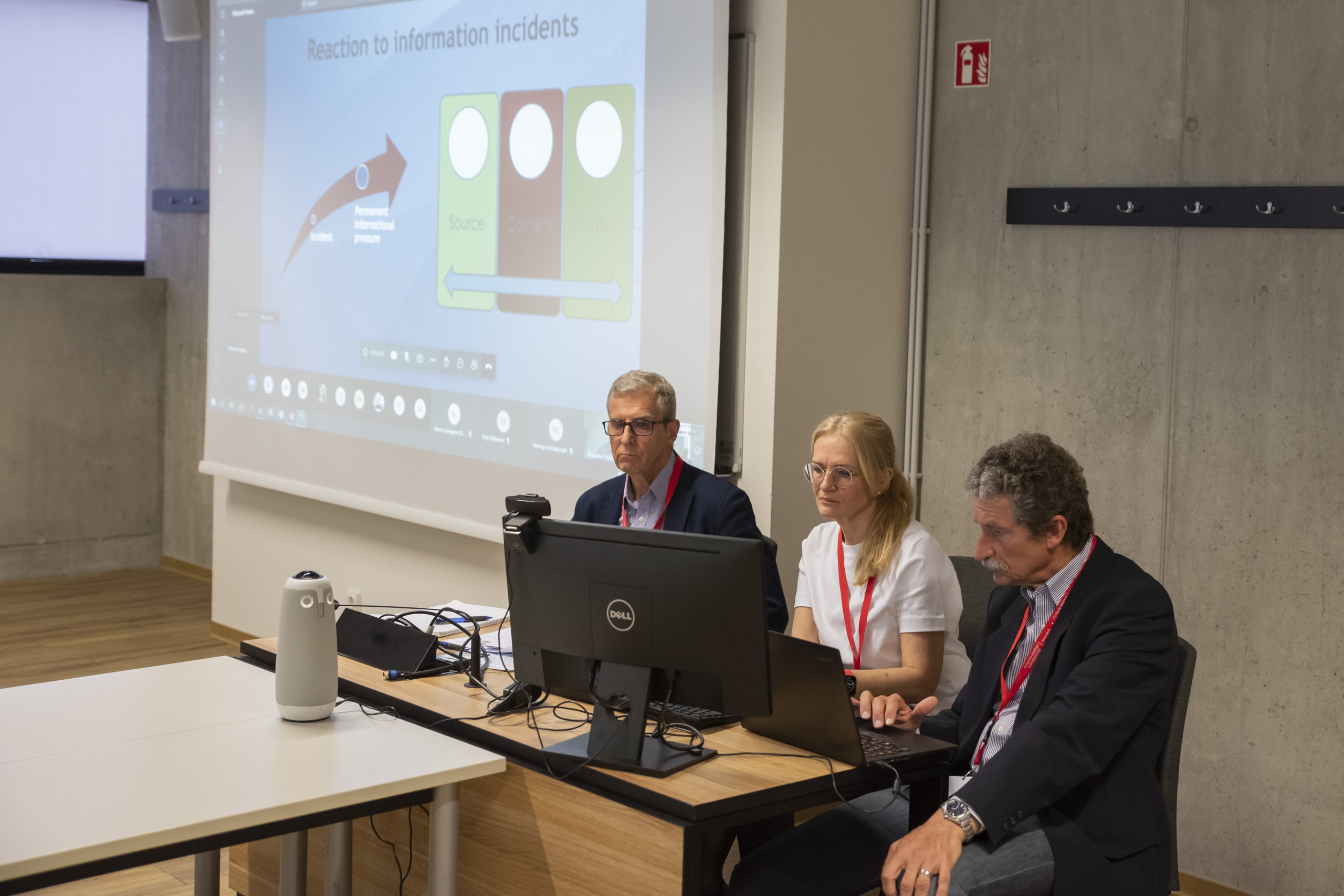 Back
Back

During The 15th Conference on Baltic Studies in Europe (CBSE) “Turning Points: Values and Conflicting Futures in the Baltics” on June 15-17th at Vytautas Magnus University, Kaunas, Lithuania, scientists from DIGIRES and BECID will present the experience of the Baltic and Nordic countries in combating information disorders and will discuss disinformation, media literacy, fight against false information narratives, and digital communication topics.
Propaganda and disinformation related issues have been receiving attention from multiple stakeholders in the Baltic-Nordic region for several years. According to prof. Auksė Balčytienė, head of DIGIRES association, Baltic States are well known in Europe for constantly showing and maintaining strong strategic thinking aimed at the democratic empowerment of citizens in the fight against malicious information such as disinformation and misinformation. “The overall result of the Baltic States can be seen most clearly in the development of scientific research and media literacy activities and efforts to transfer the idea of partnership to the political level in order to achieve partnership in political solutions of all three Baltic States” says A. Balčytienė.
During the discussion “Where does disinformation start and where does it end?” The Baltic-Nordic experience in combating information disruptions” DIGIRES and BECID scientists will speak about the informational context of the Baltic region, about how empowering and at the same time crushing the modern social media space can be. DIGIRES and BECID researchers will present joint achievements in developing democratic resilience in each country separately and in building common regional resilience in all three countries.
“The BECID network has two major strategic goals: to strengthen regional cooperation and to represent the Baltic region in the EU, which is expected to show results in the long term, for example, when applying the new Digital Services Act or monitoring the signatories’ activities on the Code of Practice of Disinformation” says BECID project manager Maia Klaassen.
According to her, the results achieved during the first six months of cooperation are obvious: instead of the planned four co-authored scientific articles, nine papers were prepared; MIL initiatives at the local level are expanded throughout the region; international cooperation between fact-checkers has enabled fact-checkers to share good practices in detecting and debunking disinformation, which has strongly contributed to better fact-checking performance.
According to prof. A. Balčytienė, even before the start of BECID, DIGIRES was already known in Lithuania and in European networks of media researchers as a unique platform in the fight against disinformation. “DIGIRES works with scientists, researchers, students, teachers, journalists, librarians, public policy implementers, Lithuanian army and other organizations. As we consistently develop different anti-disinformation and digital, media and information literacy activities (scientific research, training, strategies, proposals for public policy decisions and regulatory practice, active communication), we consult with each other, and such feedback enables us to see gaps and avoid duplication in activities” says A. Balčytienė. Scientist adds that this is especially important for small states where few researchers and journalists work, and whose context and cultural environment are characterized by specific linguistic, geographical, etc. characteristics.
Researcher Jūratė Ruzaitė says, that disinformation imitates the texts of professional media: it cites sources, presents numbers, uses linguistic means to strengthen the impression, convince, draw attention, etc. In addition, it is usually presented as an immersive narrative. “These are often didactic texts that create an opposition between ‘us’ and ‘them.’ Such stories simplify complex problems to easily recognizable ones, which makes them attractive and easy to remember” the scientist says.
However, such tendencies are not necessarily visible when looking at single text and only from the perspective of one researcher or one discipline. Therefore, according to J. Ruzaitė, projects such as DIGIRES and BECID are important for an interdisciplinary complex approach to disinformation. “Cooperation between practitioners and researchers allows us to better understand the phenomenon being studied. We tend to take some things for granted, and the combined forces of different researchers and their different perspectives can help us look at phenomena in a new way” says J. Ruzaitė.
According to BECID researcher Marju Himma-Kadakas, fact-checking contributes to ensuring democracy and empowering citizens, reducing the spread of false information and disinformation. The scientist says that BECID has really enhanced collaboration between the Baltic States and bridged the academic research communities and fact-checkers.
“I believe all my colleagues in BECID have been positively surprised by how much research is actually needed in the fact-checking. While initially, we planned only a couple of academic research papers, we are currently working on nine! This shows how much evidence-based knowledge is needed for the whole field to function better” says M. Himma-Kadakas.
However, according to the researcher, there is still a lack of research on fact-checking. “Therefore, in our research, we analyze and compare the practices, work processes and genres of fact checkers in the three Baltic countries, with the aim of providing an overviewing of how fact checking is carried out, as well as making suggestions for the possible improvement of this practise. During the conference, we will present the preliminary results of this research conducted by BECID” says M. Himma-Kadakas.
BECID is a network implementing the ideas of joint expert partnership of science and media in the Baltic States, operating from 2022. The BECID network includes: VMU and “Delfi” news portal in Lithuania (Lithuania), Tartu and Tallinn universities and “Delfi” news portal in Estonia (Estonia), Vidzeme University of Applied Sciences, Baltic Center for Media Excellence (BCME) and “Re:Baltica” organization (Latvia).